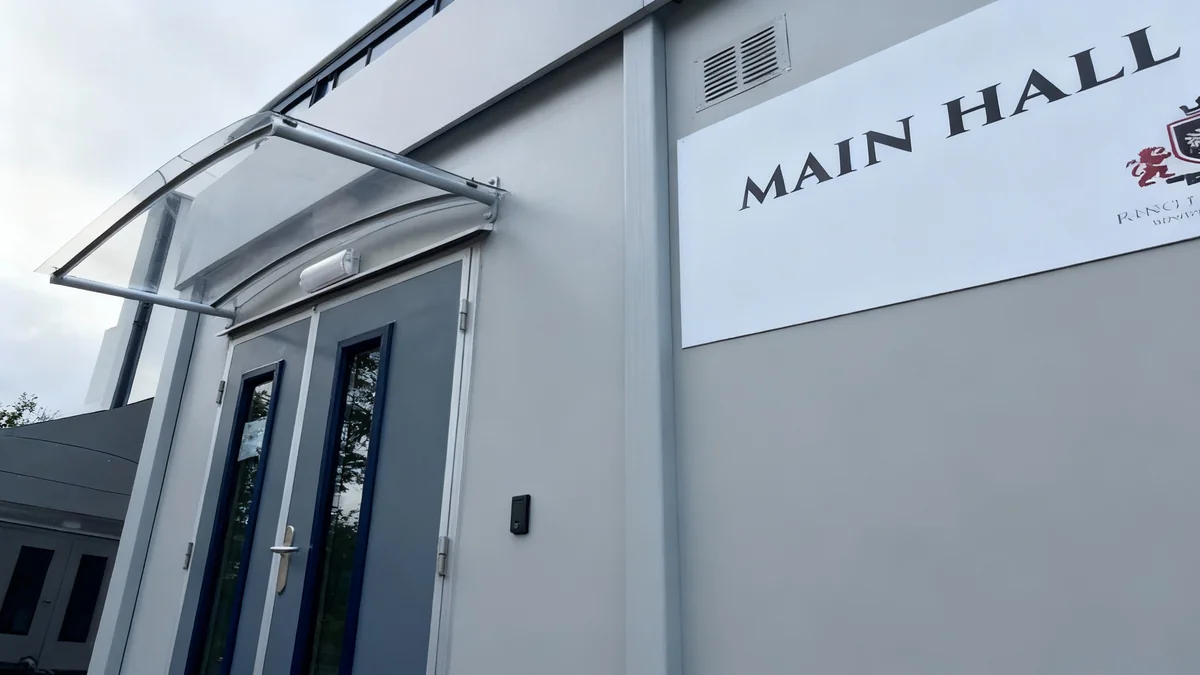The City of Liverpool College has opened a new multi-million pound construction academy at Liverpool Waters to address a significant skills shortage in the region. The facility, located at Collingwood Dock, will train 600 students annually in critical trades, including green technologies and modern building methods.
The launch comes as the UK construction industry requires an estimated 251,500 additional workers by 2028 to meet demand, according to the Construction Industry Training Board (CITB). The academy aims to shift perceptions about vocational training and provide a direct pipeline of skilled workers for major local developments.
Key Takeaways
- A new construction academy has opened at Liverpool Waters to train 600 students each year.
- The facility addresses a UK-wide shortage of over 251,500 construction workers needed by 2028.
- Training focuses on green skills, housing retrofit, and new homebuilding techniques.
- College leaders are challenging the view that university is a better path than vocational training.
- The academy includes dedicated workshops for trades like bricklaying, carpentry, and solar panel installation.
Addressing a Critical Skills Gap
The new academy is situated within Liverpool Waters, one of Europe's largest development sites. With plans for thousands of new homes and extensive commercial projects, the demand for skilled construction professionals in the city is at an all-time high.
Elaine Bowker, Chief Executive and Principal of the City of Liverpool College, highlighted the urgency of changing attitudes towards technical education. She argues that traditional advice pushing young people towards university is often outdated in the current economy.
"Sadly, I still think parents who care deeply about their children still give a lot of bad advice. They tell their children ‘get as many GCSEs as you can, get your A Levels and then go to university’," Bowker stated. "But the economy has changed so much and it is actually people who choose technical skills who are getting their first-choice jobs."
Bowker believes that careers in construction and engineering are more resilient to automation and artificial intelligence than many traditional white-collar professions. "There are skills that are very difficult to replace with AI," she added.
By the Numbers: The Skills Challenge
A survey by careers specialist Prospect of 5,000 A-Level students revealed that while 60% hoped to go to university, only 12% would like to do an apprenticeship. Nearly half of the students surveyed viewed apprenticeships as a second-rate option.
State-of-the-Art Training Facilities
The academy is an expansion of the college's smaller Construction Hub, which first opened in 2019. The new, larger facility is designed to provide hands-on training that meets the specific needs of the modern construction industry.
It will offer full-time programs, apprenticeships, and adult training courses. The curriculum is focused on three priority areas:
- Green Technologies: Training in skills like solar panel and ground source heat pump installation.
- Retrofit Skills: Upskilling workers to upgrade existing housing stock for energy efficiency.
- New Homebuilding: Teaching modern methods of construction (MMC) for new residential projects.
Inside the Academy
The facility includes three purpose-built workshops, each measuring 1,600 square feet. These spaces are dedicated to core trades such as brickwork, carpentry and joinery, and plastering. There are also specialized areas for solar technology and MMC.
A dedicated Green Skills training centre will allow students to work alongside energy companies, including First Utility and Tomato Energy, on real-world projects. In addition to workshops, the site has six classrooms for theoretical learning, including maths and English, ensuring students receive a well-rounded education.
Political Support for Vocational Training
The academy's focus aligns with a recent shift in national policy. During a speech in Liverpool, Prime Minister Sir Keir Starmer indicated that his government would look to prioritize vocational training and apprenticeships over a purely higher education-focused approach, a move supported by local businesses.
Building a Diverse Workforce
A key objective of the new academy is to make the construction industry more inclusive. According to recent data, women make up just 15% of the UK's construction workforce, and only 2% of on-site workers are female.
Neil Borg-Oliver, the college's Vice-Principal for Curriculum Development and Innovation, stressed the institution's commitment to breaking down these barriers. "It is not just about making this an incredibly safe, welcoming place for anybody to come and study but also to provide role models," he explained.
The college partners with local firms like Kimpton, a Wirral-based facilities management company, to bring former apprentices back to speak with current students. Borg-Oliver cited the example of a successful female building services engineer who now serves as an inspiration for new learners.
"We are finding more females do want to get into the sector and start their own businesses," said Elaine Bowker. "We already have a number in the college and this centre will be geared up to welcome females."
A New Model for Education
Bowker believes that further education colleges are now central to supplying the skills the UK economy needs to thrive. She advocates for a system with closer ties between education providers and employers, similar to the model used in Germany.
"I really believe in that symbiotic relationship between employers and colleges. We can’t survive without them, they can’t survive without us," she said. "The job market is changing so much and we are filling that gap. We are all about technical and professional skills."
Neil Borg-Oliver added that the curriculum is designed to be agile and responsive to industry demands. "Our job is to be really close to industry to understand when new skills are needed and the scale at which they are needed," he concluded. The academy's location at Liverpool Waters positions it to serve as a central training hub for the numerous developers and contractors shaping the city's future.





